CNJ Aid Van: From Camden with solidarity, we hand out your donations at the Ukraine border
Amazing volunteer effort as Polish people welcome Ukranian refugees crossing border
Monday, 4th April 2022
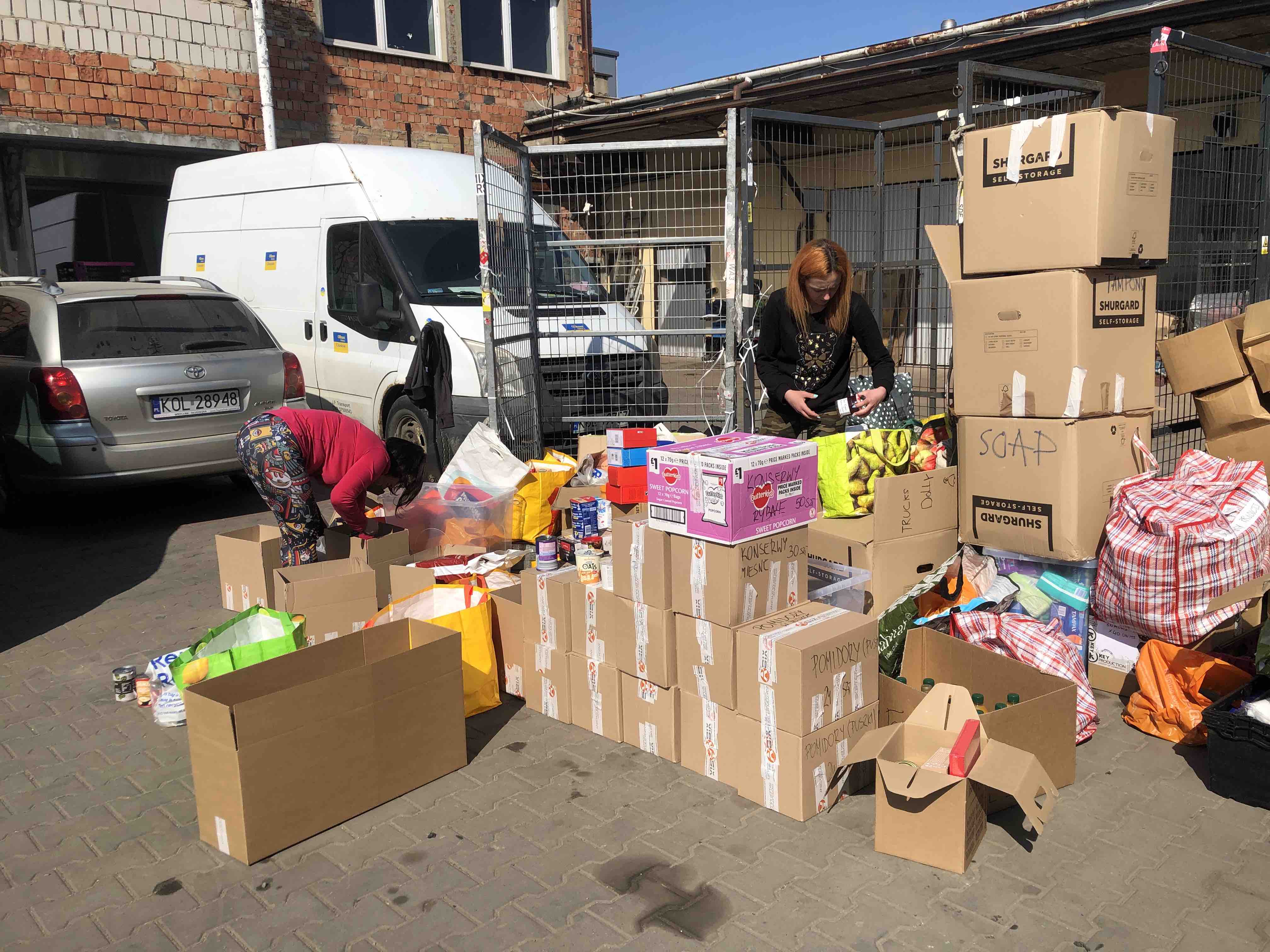
Your donations ready to be sorted out at a makeshift depot in Poland, close to the Ukraine border
THE small town of Boleslaw is named after the famously brave Polish King who died in 1025.
A mining area known for its silver deposits, today its citizens are channelling the courage of King Boleslaw as they face the largest refugee crisis since the Second World War coming over the Ukrainian border
It was here that the New Journal arrived last week with a van-load of your donations.
Some of the supplies that readers collected were given to the scores of Ukrainian families now making this town their home.
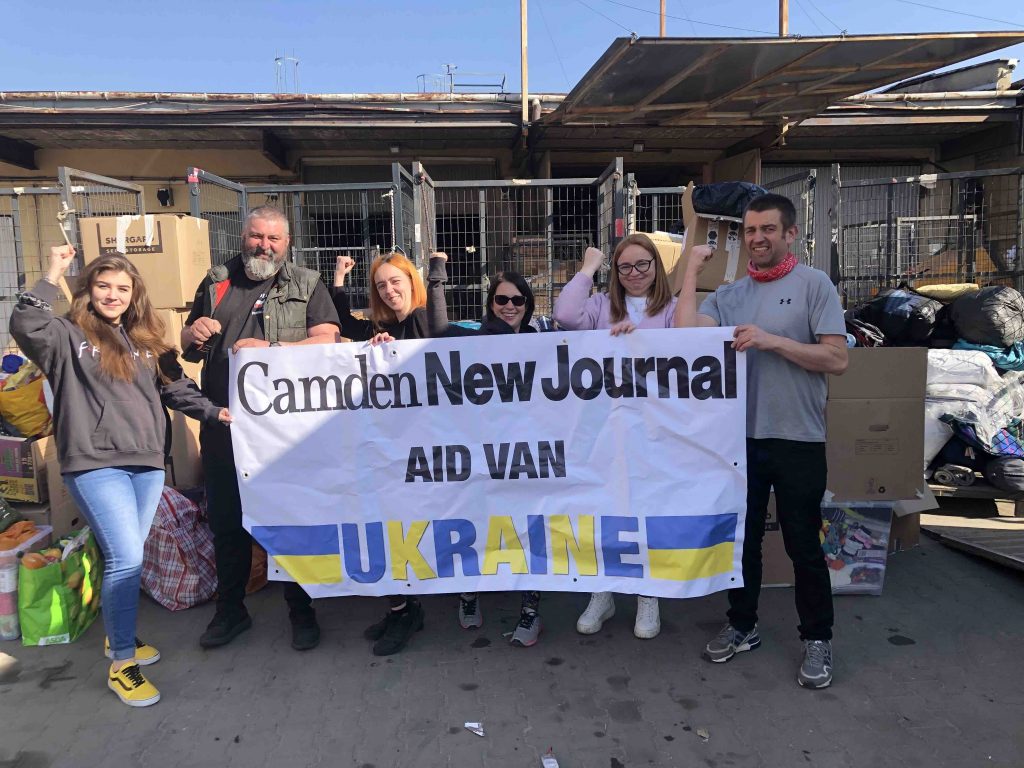
Volunteers said thank you for the generosity shown by CNJ readers
On trips we were advised were too dangerous for our van, other donations were driven directly across the border and into Ukraine by volunteers we were working with who knew routes most likely to be safe. There, bandages and medical items that you gave reached front-line hospitals.
This town centre, where the refugees are arriving with only what they can carry, is surrounded by disused railway tracks and homes of miners.
And it is Boleslaw’s ingrained technical knowledge which helped townsfolk hit on an idea to deliver thousands of Ukrainian people to safety.
SEE ALSO: CNJ AT 40: HELP US CELEBRATE OUR BIRTHDAY
– AND SUPPORT CAMPAIGNING JOURNALISM
CLICK THE DONATE BUTTON TO MAKE YOUR CONTRIBUTION
Tucked away in scruffy cuttings is the former Boleslaw railway station, lying next to track built by Soviet Union railway engineers.
It has not been used for 40 years, but fortunately, no one had dug the line up, or even scrapped carriages – which are so old they are heated by a single wood-burning stove.
Watching the scenes of chaos at Ukrainian railway stations, and border traffic jams, the people of Boleslaw saw a possible way of helping those in danger.
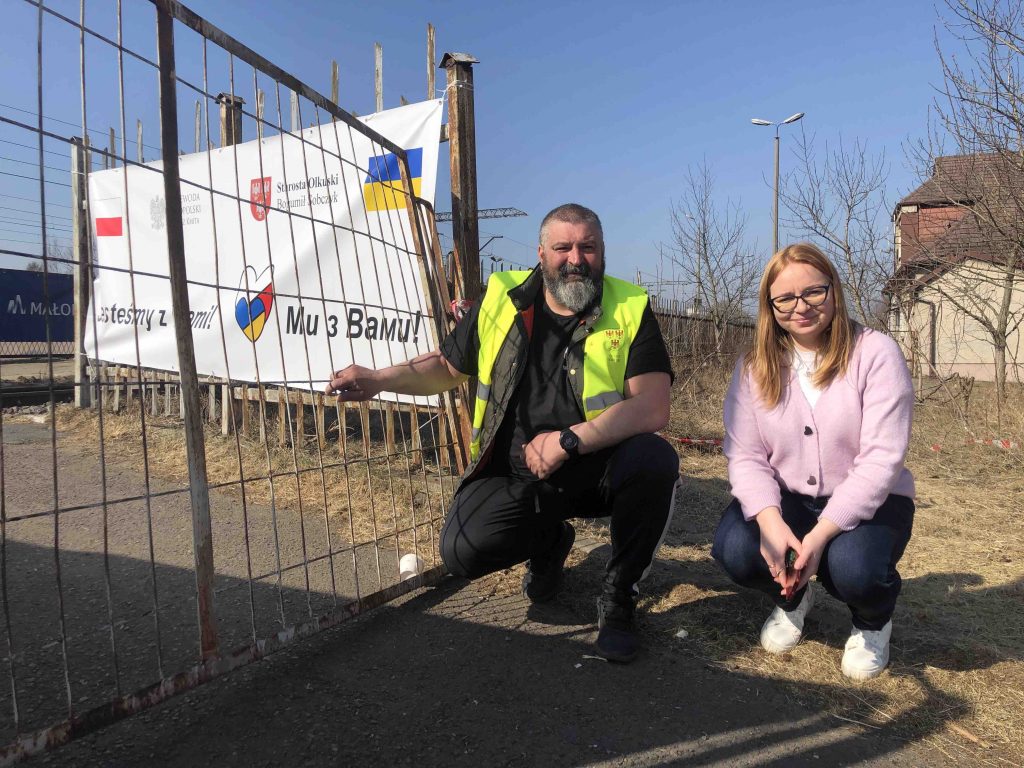
Grzegorz Sroka and Olga Pitch
Volunteer Grzegorz Sroka, who works as a welder, has been driving aid into the war zone each day.
He joined a collective action to get the track working once more to bring those fleeing war into the welcoming arms of Boleslaw residents.
“We had this old Russian line coming straight into the town, so we got together as many people as we could, and went down and cleared it,” he said.
Volunteers moved debris and made the line safe.
Mr Sroka added: “We had trains that could carry 1,200 people. We ran six each per day. They were all full.”
At the re-opened station, a marquee was set up to offer a resting point and advice.
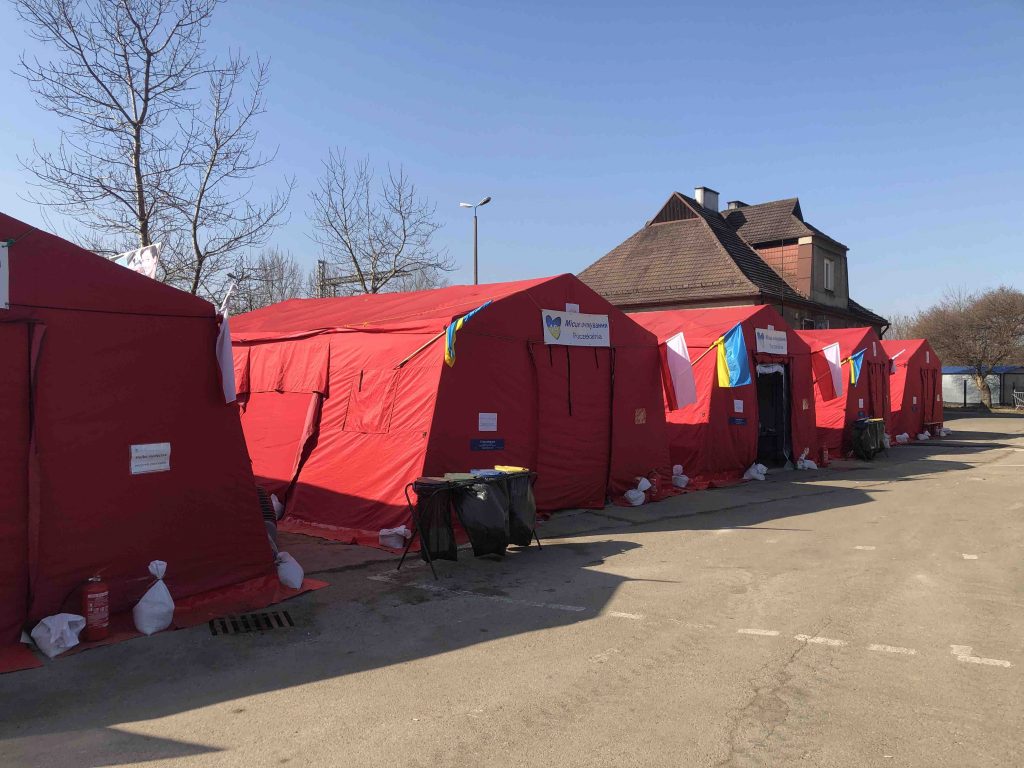
Medical tents were established, and its staff looked after sickness, fatigue and, ominously, patched up innocent victims of bomb blasts.
Volunteer Olga Pilch told the New Journal how the thousands fleeing were offered beds in the town.
With many Ukrainians reluctant to travel too far from their home country, Poland’s population has increased by three million in six weeks.
The sound of Ukrainian voices rings out, said Ms Pilch, adding: “We have been doing all we can to make people feel comfortable.”
Meanwhile, Mr Sroka’s metal workshop has become a depot for aid.
Here we unloaded the New Journal’s donations, which were then sorted out into smaller packages by a host of volunteers.
Mr Sroka loaded bandages, dressings and medicines we had provided into his van, and described the dangerous journey he would embark on with our life-saving supplies.
“We contact friends who are in Ukraine,” he said.
“We meet them and then soldiers will take some of your goods to the fronts. They pick up the boxes of bandages and medicine from a rendezvous point with us in the afternoons and get them to where they are needed while it is still light.”
So the traffic from Ukraine has also been heading in the opposite direction with people trying to help.
It is treacherous, though.
Mr Sroka has watched with resignation as friends have gone over the border and not returned.
“Not only are men going to fight, but also the women,” he said.
“We know Ukrainian women who live in Poland who are going there. They are young and skinny and you do not know how they could carry a gun, but they have big hearts and are exceptionally brave.
“They may not be as large as me but they are fighters.”
Mr Sroka has been making runs to an orphanage in the city of Zhuravno in western Ukraine looking after children from across the nation who have lost their parents to Vladimir Putin’s invasion.
He delivered more of our donations there, which included warm clothing, bedding, toys and food. But it was painful to hear when he described the horrendous conditions these children find themselves in.
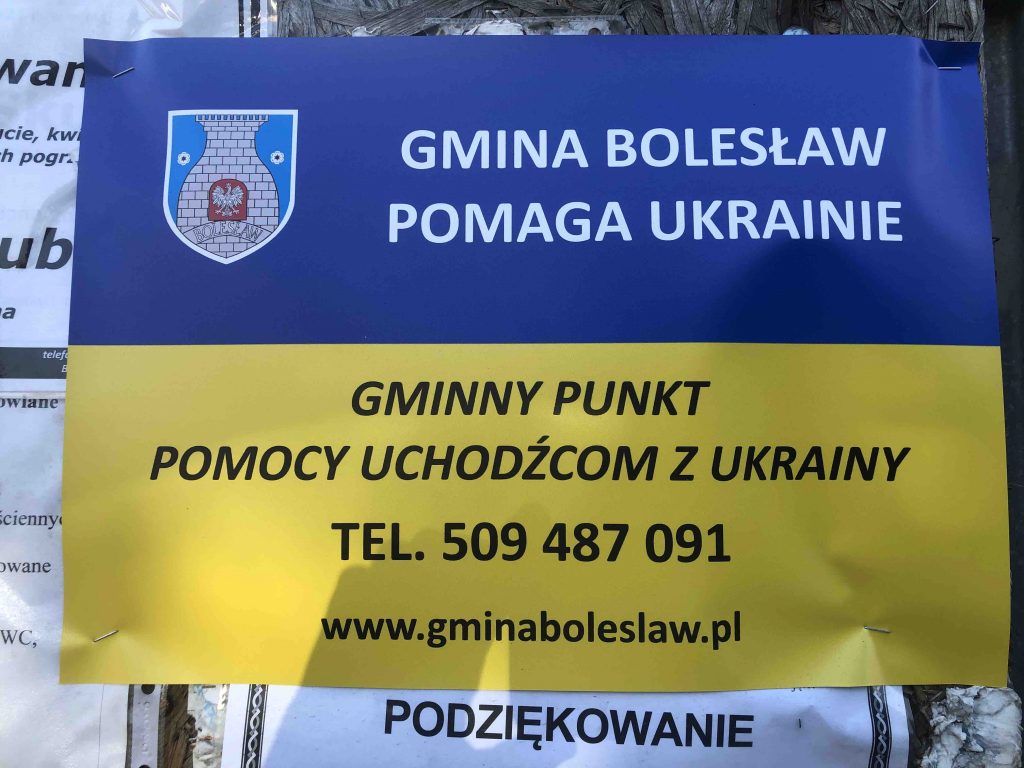
Mr Sroka said: “They are being looked after in a medical facility that shut down 10 years ago and should have probably closed many years before then. It is a clinic, a place for old people to go and recover. It is empty. There are just two heaters for the whole place. There is no bomb shelter when the air raids start.”
Mr Sroka said his Ukrainian friends at the orphanage are upbeat and have the determination of those fighting for their homes.
He said: “I am confident the army and the citizens will keep the city and the orphanage safe. Russians will not get near that place. We will make sure of that.”
The New Journal would like to thank all readers who donated and the volunteers in Poland who helped with our deliveries.
FOLLOW US ON FACEBOOK. CLICK BANNER.
